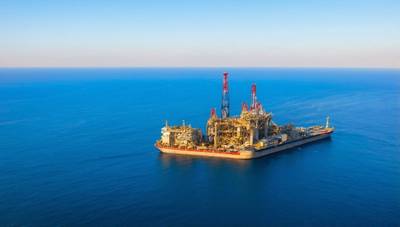Chevron, other companies withdraw from Egypt's Red Sea concessions and redirect resources
The Egyptian petroleum ministry reported that a number of multinational oil companies, including Chevron, have left their Red Sea oil concession blocks without finding any oil or gas and have instead channeled their resources to other parts of the country.
In 2019, Egypt, as part of its effort to become a hub for energy, awarded the first oil and gas exploration concessions on the Red Sea to Chevron and Shell, and the Abu Dhabi sovereign fund Mubadala Investment Company.
Moataz Aef, spokesperson for the ministry, told reporters Thursday that companies had spent millions of dollars on concessions in accordance with agreed-upon timeframes.
He said that a company had spent $34,000,000 on a contract which stipulated initially it would invest $10,000,000 in exploration but no results were found.
Chevron has confirmed that it has relinquished 45% of its Red Sea Block 1 stake, located in northern Red Sea.
Chevron is committed to supporting the growth of Egypt’s energy sector by working with the Egyptian government and our partners through our exploration program in the Mediterranean, said Sally Jones in a Friday statement.
The block is operated by Chevron along with Woodside Energy, an Australian company. Shell shares Block 3 with Woodside Energy, QatarEnergy and others.
Atef didn't name any of the companies he claimed had renounced their Red Sea Blocks. Shell declined to make a comment. Mubadala Woodside Energy, QatarEnergy and QatarEnergy did not respond to requests for comment.
The spokesperson for the petroleum ministry stressed that his ministry believes concession areas can still be profitable.
He stated that Shell and Chevron have applied for new concessions on the Mediterranean Sea. They also reaffirmed their commitment to Egypt’s oil and natural gas sector without providing any further details.
Chevron's spokesperson Jones stated that the company was interested in three additional exploration blocks in Egypt. This includes two other blocks as operators in the Mediterranean.
Egypt produced 4.6 billion cubic metres of gas in January 2024. Data from the Joint Organisations Data Initiative shows that despite efforts to increase production, it remained in a downward spiral, with 3.6 billion cubic metres of gas recorded in January 2025.
Atef has sought to assure that Egypt will be able meet the rising demand for electricity this summer.
He said that by the summer we would have between three and four floating storage units, which will help to stabilize the natural gas supply. LNG shipments had been secured and an emergency plan was in place for any sudden demand spikes.
Egypt experienced power shortages last summer. This was exacerbated due to high cooling demand. Egypt resorted load-shedding, and imported goods costing $1.18 billion. Reporting by Mohamed Ezz, Jaidaa TAH; Editing by Alison Williams
(source: Reuters)



